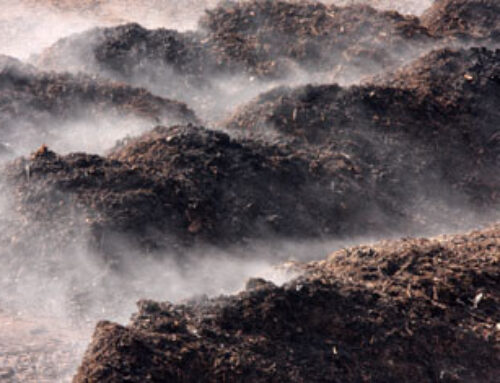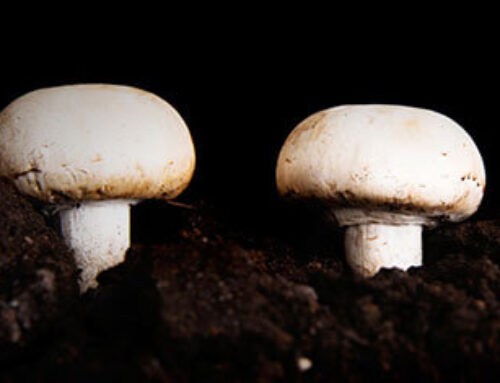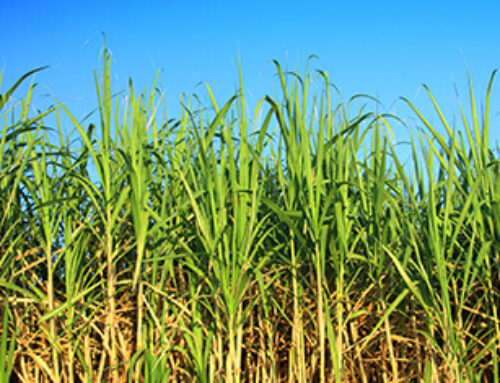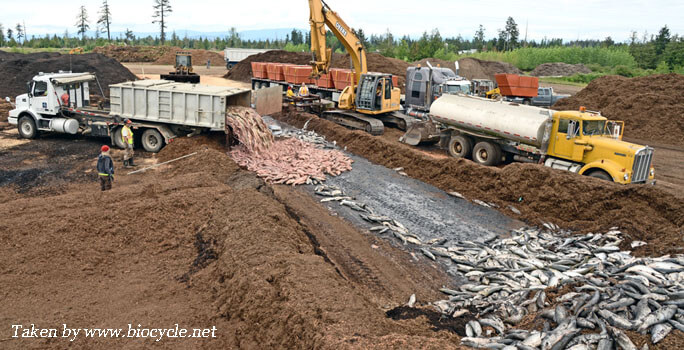
As is well known, the fishery and fish farm industry has developed rapidly in recent years, but the catching and processing of fish also create a very great deal of fish waste. For example, among over 850 thousand tonnes of fish in the United Kingdom, it is considered that only forty-three percent is treated as final products for human food consumption while the rest of 57% is deemed as fish garbage. Fish wastes can cause adverse effects on both the area environment and wider coastal zone at various ecosystem levels by polluting water and aquatic plant and spreading parasites, bacteria, and diseases. Some countries have also passed laws and regulations to ban discarding fish waste, with exceptions, into freshwater or within 100 feet of shore. Therefore, in the face of such a large quantity of fish waste, without proper disposal, the surrounding humans would suffer a deepening crisis and our ecosystem would be damaged.
What is Fish Waste Composting
Composting, the process of allowing organic material to decompose in a controlled setting, is a natural organic fertilizer made from various plants residual (such as cow dung manure, fish waste, crop straw, weed, tree leaves, and other rejected materials), mixing with man and beast manure through the decomposition process. From the past experience, fish waste composting is a relatively fresh, practical and environmentally friendly method to dispose of fish garbage to get rid of the undesired fish parts and their disgusting smell, turning fish waste into valuable products with the marketable worth on soil. In composting, wastes such as unwanted fish parts should be mixed with wood and green wastes (like leaves, crop straw, sawdust, wood chips and so on) that can provide a receiving bed for fish residuals. During the process of compost, microorganisms in the pile feed on the waste and generate a large amount of heat, pasteurizing the wastes, removing the foul smells, and killing disease organisms.

As an efficient way to turn fish remains into organic materials, fish waste composting is a natural and beneficial process to produce fertilizers for cropland, garden and other farms. Here, let’s talk about fish waste composting technology and some important points.
- Collect fish wastes and place them in several layers with carbon (wood chips, rice hulls or straw, etc.), nitrogen (fish remains), air and moisture. Remember to turn the piles for aeration, which can make sure piles can get enough air for better composting. There is a compost turner machine that is specially designed turning equipment for oxygen fermenting organic materials. With the advanced technology and solid material, this machine has high automation, simple operation and large capacity, all of which make it become a popular compost turner among big farmers in America and Europe.
- Usually, the commercial or industrial composting facility should be a quite large-scale operating project with a carefully controlled setup, always located far away from the crowded area because fewer people would suffer odors and pests from these composting setups. For businesses or institutions producing fish waste, the organic materials can be easily decomposed into good quality compost by using an industrial composting facility.
- With high water content, fish waste is always accompanied by odor production and a lot of leachates. In order to deal with these problems, composting workers should build piles with good ventilation and aeration to remain aerobic and avoid stagnant water. Meanwhile, it is better to use plenty of bulking agents with a high C:N ratio (like sawdust or wood chips) in the decomposition process so as to decrease leachate.
- According to available space, compost pile sizes should be various. But the minimum pile for productive decomposition should be ten Cubic Feet, or 3’x3’x3’ is also feasible. Through some period (maybe several weeks or longer) of decomposition, the temperature of the pile will descend to the surrounding temperature, after that, fish waste composting would succeed soon. And finished composting products can be applied as fertilizer in gardens, farms and plant landscapes.
See more information on factors affecting compost quality by clicking this link.
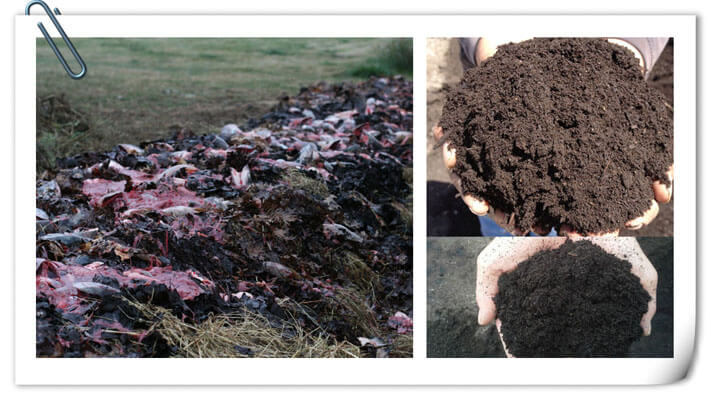
With proper disposal decomposition, fish remains can be turned “waste” into wealth, not only for the environment and agriculture but also for the fishery industry. To be specific, fish waste composting can aid in pollution abatement and building a fairly good ecological environment, protecting water resources from contamination. Moreover, it’s beneficial to increase soil nutrient content, restrain some plant diseases, decrease parasites and eliminate weed seeds. As organic fertilizer, high-quality fish waste composting also has marketable value, which can increase extra income opportunities. Besides, it also helps to end the waste of recyclable raw ingredients by returning nutrition back to agriculture. In virtue of all these advantages, fish waste compost can be applied to farms, gardens, vegetable production, field crops, trees, and landscapes as a soil amendment and fertilizer supplement to increase soil organic matter and nutrients, promote moisture-holding ability, and then enhance production and quality.


